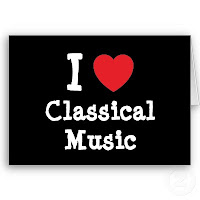Is there a difference between an e-book and a good old-fashioned paper book?
Besides the obvious, I mean.
I admit, I am a fan of the paper book, but that is just my personal preference. That doesn't mean I think reading paper books is the right choice for everyone. Here are a few reasons I have thought of as to why people might prefer one over the other.
Perks of an e-book:
1. You can have all your books in one spot
2. It's cheaper per book
3. A Kindle is not as heavy to carry as a bunch of books
4. You can feel technologically advanced and progressive
5. Your bookmarks won't fall out
6. You can feel secure in the knowledge that you are saving trees
Perks of a paper book:
1. You can enjoy the old-fashioned format
2. You can put sticky notes inside and write in the margins
3. You can thumb through looking for a certain part
4. You can pay just for the book you want without having to buy a technological device
5. You can put it over your face when you want to sleep in a hammock
6. If it gets destroyed, you've only lost one book
You can probably think of more, but my point is that for adults, at least, it seems like digital vs. paper is mostly a matter of choice at this point. But what about for children? Children are known for often destroying paper books. In my house, we have a copy of "One Fish, Two Fish, Red Fish, Blue Fish" that I swear a fisherman went to town on or something, because half the fish are missing. Along with the covers. And a few words. Actually, a lot of words. And "The Princess Bride" is split in half right down the spine, and has another book shelved in between. And "Pippi Longstocking" is quite dogeared and naked. Poor Pippi. None of these things would happen to a Kindle. Maybe paper books aren't the best, after all.
On the other hand, if a child drops "Fox in Socks" in the bathtub, well, you've lost "Fox in Socks." But if a child drops a Kindle in the bathtub, you've not only lost "Fox in Socks," but you've lost all your books and your Kindle as well. Expensive bath. Since there are risks both ways, perhaps book format for children is also personal preference.
As you make your decision, Kindle vs. paper, feel free to choose what is most compatible with your needs and best fits your personal preference, but don't make your decision based on fear of change. Changing from one format to the other is nothing new.
We don't read scrolls anymore, and who knows... maybe someday no one will read books, either.






















